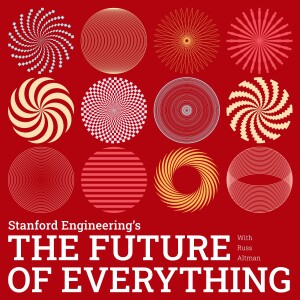
Sharad Goel: How hidden bias affects the criminal justice system
 2019-05-31
2019-05-31
Download
Right click and do "save link as"
In-depth statistical analyses show time and again that subtle, unconscious bias is pervasive in the American justice system. The bigger question, however, is what to do about it?
Sharad Goel is an expert in computational social science – that is, using computers and data to examine and address policy issues. He says unconscious bias is subtle but entrenched in American life, and nowhere are the consequences more concerning than in criminal justice.
Goel has analyzed hundreds of millions of crime records to show, for instance, that black drivers are pulled over more than white drivers and that judges demand bail too often. He says the data suggest that up to 30 percent more people could be released on their own recognizance without adversely affecting crime rates.
Goel is developing risk assessment tools to assist in high-stakes decision making. He cautions, however, that algorithms are an aid, not a panacea. They should be used to inform decision making and to help decision makers to make fairer choices, but not to actually make the decisions.
Listen in as host Russ Altman and expert in social data science Sharad Goel discuss bias and transparency in the criminal justice system. You can listen to The Future of Everything on iTunes, Google Podcasts, SoundCloud, Spotify, Stitcher or via Stanford Engineering Magazine.Connect With Us:
Episode Transcripts >>> The Future of Everything Website
Connect with Russ >>> Threads or Twitter/X
Connect with School of Engineering >>> Twitter/X
view more
More Episodes
Jeffrey Pfeffer: Your job is killing you
 2018-07-14
2018-07-14
 2018-07-14
2018-07-14
Craig Criddle: Redefining waste treatment
 2018-04-07
2018-04-07
 2018-04-07
2018-04-07
012345678910111213141516171819
Create your
podcast in
minutes
- Full-featured podcast site
- Unlimited storage and bandwidth
- Comprehensive podcast stats
- Distribute to Apple Podcasts, Spotify, and more
- Make money with your podcast
It is Free
- Privacy Policy
- Cookie Policy
- Terms of Use
- Consent Preferences
- Copyright © 2015-2024 Podbean.com




